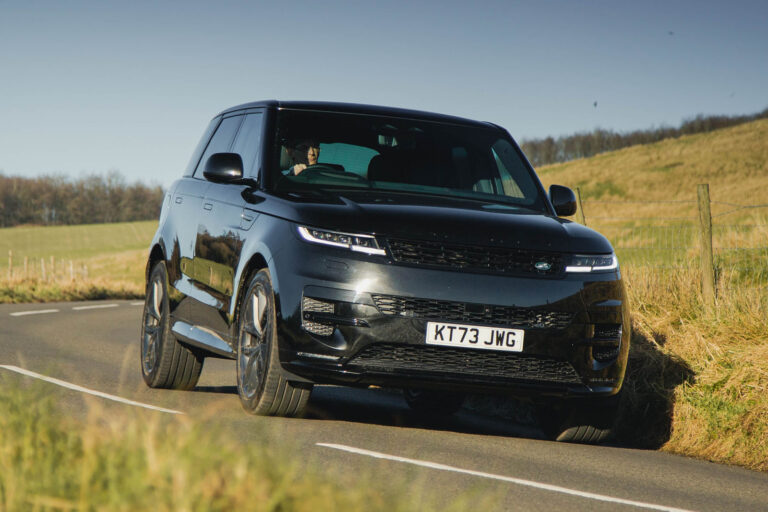He added: “The insurance industry clearly are not using the information in the data, which is a consistent series of dialogues and messages we’ve had with that industry for the last six months. They are very slow to respond to data.”
Mardell calls for more action to protect motorists
Mardell added that JLR was taking a string of action to continue cutting vehicle theft in a bid to reassure owners and the insurance market.
“We know how upsetting somebody losing a vehicle will be. We’ve had employees whose vehicles have been stolen. I’ve had friends whose vehicles have been stolen. We know how upsetting this is. So we’re doing more than just [making safer] new vehicles: you have to differentiate between the current ones being built and the existing car parc.”
Last November, JLR launched a £10 million fund to introduce security updates for around 200,000 vehicles it built between 2018 and 2022. Mardell said 80,000 vehicles had now received the enhancements and that “theft rates for those are as low as for new vehicles”.
The firm will soon expand that programme to pre-2018 cars, and it will eventually cover 450,000 vehicles, although Mardell acknowledged that speed of delivery was an issue, because many of the cars included are onto second or third owners.
“We know this technology means stealing a Range Rover, stealing a Defender, stealing a Discovery and stealing a Jaguar is not possible,” he said.
Government action needed to cut organised vehicle crime
Mardell cited other actions JLR was taking, adding: “We’re working with the government on the Criminal Justice Bill. This technology [used by vehicle thieves] is not illegal, so that’s got to change. We’ve got to make it more difficult for gangs and criminals to operate.
“We’re partly funding police security at the ports, because there isn’t enough. The containers are not being checked and [stolen cars] get out of the country. If we could stop it there, then the ability for these gangs to do this will be restricted.


